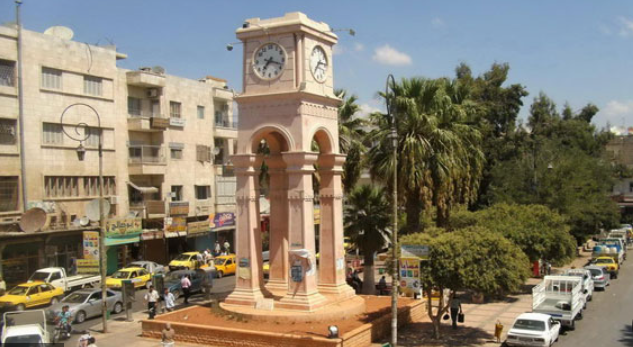Idlib Governorate is located in northwestern Syria and is considered a governorate that combines a rich history with diverse natural landscapes. It spans an area of approximately 6,097 square kilometers and boasts a strategic location connecting it to several Syrian governorates, making it a gateway to the coastal and northern regions.
1. Historical Overview
Idlib has a history spanning thousands of years, having been part of multiple civilizations such as the Hittites, Romans, and Byzantines. It also played a significant role during the Islamic conquest and the Middle Ages. Idlib is famous for numerous archaeological sites that reflect its successive civilizations, and it was also a center of science and culture during the Islamic eras.
2. What is it Known For?
- Agriculture: The governorate produces essential crops like wheat and barley, in addition to fruits and vegetables such as olives and figs.
- Archaeology: It contains many important archaeological sites, such as the ancient city of Sarmin and the town of Ma'arrat al-Nu'man, which houses ancient churches and monasteries.
- Traditional Crafts: Especially the production of pottery and textiles.
3. Key Tourist and Historical Landmarks
- Ma'arrat al-Nu'man: Famous for its historical monasteries and churches.
- Sarmin Archaeological Site: Contains remains of ancient civilizations dating back thousands of years.
- Great Mosque of Idlib: One of the city's ancient Islamic landmarks.
- Historical mosques and churches spread throughout the governorate.
4. Geography and Climate
Idlib's terrain varies between fertile agricultural plains and low mountains, providing a suitable environment for various agricultural crops. Its climate is moderate Mediterranean, with hot, dry summers and cold, rainy winters, contributing to the diversity of its agricultural produce.
5. Culture and Customs
Idlib Governorate is characterized by a rich and diverse culture, blending Arab heritage with authentic Syrian rural traditions. It is known for its folk chants and distinctive songs, in addition to traditional handicrafts that preserve ancestral heritage. The local cuisine is rich in popular dishes such as Kabsa and Fatteh.
6. Economic Activities
Agriculture is the primary economic activity in the governorate, with significant production of grains, olives, and fruits. There are also some small traditional industries like pottery and textiles. Archaeological and cultural tourism also represents an important source of income for the governorate.
7. Major Cities and Towns
- Idlib (Capital)
- Ma'arrat al-Nu'man
- Sarmin
- Ariha
- Salqin
8. Infrastructure and Services
The governorate faces infrastructure challenges due to the conflict, with damage to some roads and vital facilities. Nevertheless, there are road networks connecting cities and villages, and scattered health centers and schools. Efforts to rehabilitate services and basic infrastructure are ongoing.
9. Current Situation and Challenges
Idlib is one of the governorates that has experienced continuous tensions and conflicts in recent years, impacting its security and economic situation. Local and international organizations are working to provide support and assistance in rebuilding and improving living conditions. Reconciliation and stability efforts continue despite significant challenges.
10. Prominent Figures
- Thinkers and writers who have enriched Syrian culture.
- Activists in social and political fields.

